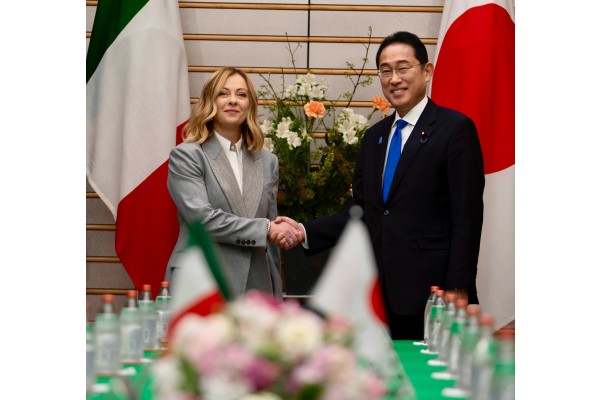The Indo-Pacific, a key sphere of geopolitical contestation, is seeing new partnerships. It’s been a rallying point for the West and the Global South, against Chinese bullying and expansionism. Now, Italian Prime Minister Giorgia Meloni has met her Japanese counterpart Fumio Kishida in Tokyo and said her country will boost strategic collaboration with Japan and step up its presence in the Indo-Pacific region.
Italy wants to have an increasingly significant presence in the Indo-Pacific, Meloni told reporters. That means more joint military exercises, with F35s, aircraft carriers, etc.
Other principal players in the region include China, the US, the UK, not to forget the AUKUS alliance.
But the dynamics of the region has undergone a sea change though some factors remain as they were in the 1950s, says former Indian Foreign Secretary Vijay Gokhale. So what has changed?
“First of all, the United States is no longer as dominant as it was. Second, China is much stronger and is capable of challenging the United States in its periphery. Third, India is much more influential than it was. Lastly, the British empire has faded away entirely, so the situation is not identical,” Gokhale told StratNews Global.
But one thing has persisted over these 70 years. “The hotspots in the Asia Pacific—Korea Taiwan and the South China Sea—have remained constant and you now have the reversion to a situation where the United States and China see each other as an existential problem as they did in the 1950s. So we are operating in a similar environment where the two major powers are on the path of confrontation, not conflict. And we have to find our position in this developing situation.”
Gokhale believes the United States does not and will not have the capability to police both the Indian and the Pacific oceans and may delegate part of the task.
“As the primary focus of the US is the Pacific since China is its principal adversary, it might tend to outsource or at least delegate some of the responsibility for managing Indian Ocean affairs to its allies and the establishment of AUKUS is a body which I feel might take on that responsibility and that might bring the United Kingdom back into the Indian Ocean.”
And, according to Gokhale, that’s where the problem lies for India. It’s been a historical issue about conflicting positions of the US and the UK vis-a-vis China and how India was led up the garden path by the British empire.
In his latest book ‘Cross Winds’, Gokhale writes that in the 1950s, the United States and the British empire had very different interests in the Pacific and towards China.
“The US was interested in stopping communism; it had a geostrategic objective but the British wanted to preserve their empire, which meant colonies and trading rights. So one wanted confrontation with China but the other was willing to do accommodation with China. Since we were the only other major Asian power, we got pulled in two directions and ultimately sided with the British by ignoring some sane American advice, especially on the issue of recognition of the People’s Republic of China (in 1949),” Gokhale told StratNews Global.
So what should India do now? We must talk directly with the Americans and with the Chinese but must not let a third party, particularly the UK come into that calculus, says Gokhale.
At six feet and over, cool, calm and always collected. Never a hair out of place. He is the high priest of editorial facts, grammar is his baby and headlines are meat on the bone. Loves samosas and cricket, tracks Twitter and when in his cups, nothing better than Jagjit Singh’s ghazals.





